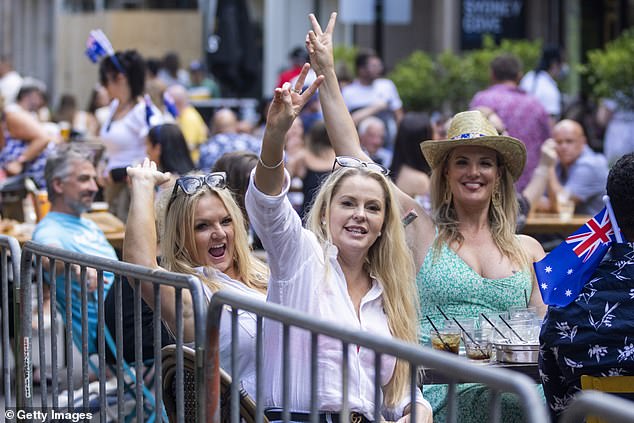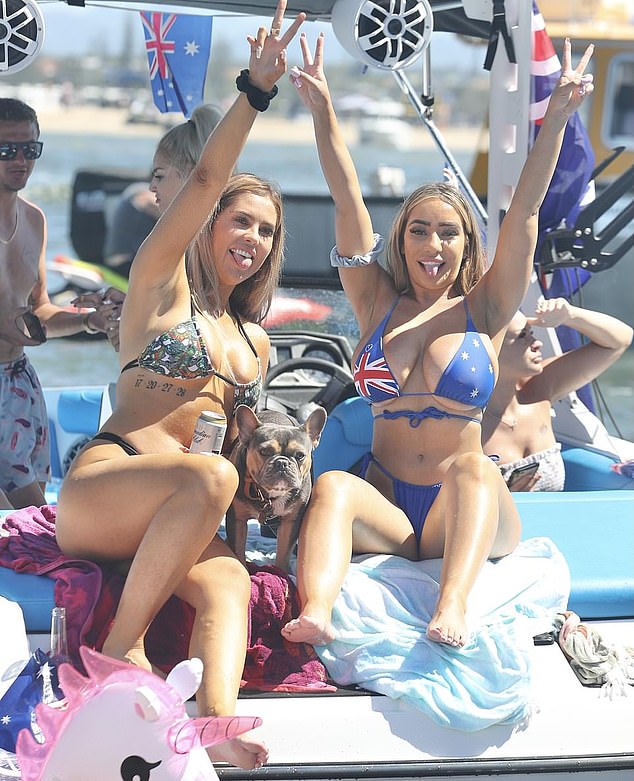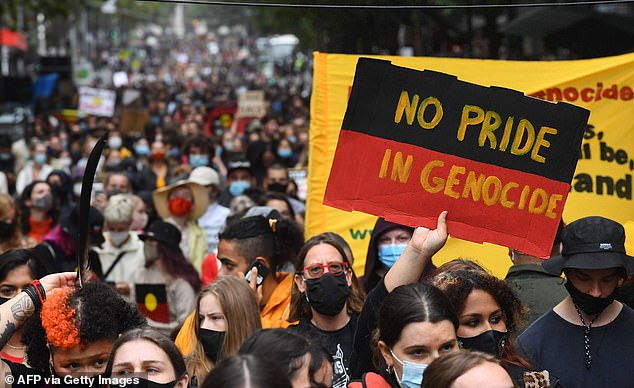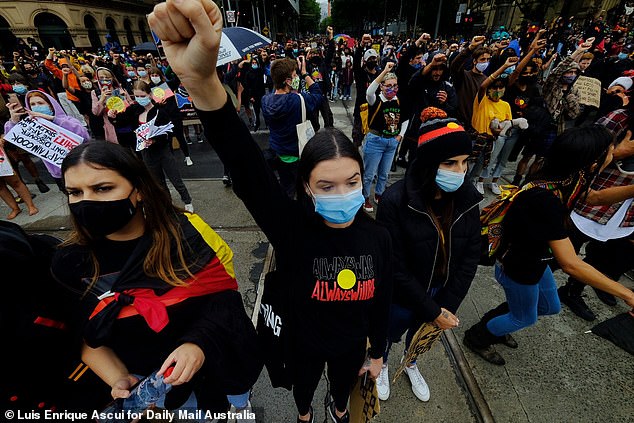Aboriginal model tells Aussies why they should NOT post Australia Day celebration photos
>
An Aboriginal model has urged Australians to refrain from posting photos of Australia Day celebrations on social media as it is “insensitive” to the plight of First Nations people.
Millions of Australians flock to beaches, backyard barbecues and pubs on January 26 with flags draped over their sun-drenched shoulders to mark the national holiday.
But for the country’s first inhabitants, the date marks the beginning of the painful and devastating impact of colonization on their culture since the first British fleet set sail for Sydney Cove in 1788.
Fallon Gregory, a proud Kija/Bardi and Nyul-Nyul woman from Western Australia, says that if people are participating in proud and open Australia Day celebrations, they should not post photos on social media.
“It shows support and lack of sensitivity,” he told news.com.au.
The mother-of-two said Australians could show their support for Aboriginal people by sharing information on social media about why people shouldn’t celebrate Australia Day on that date and by attending demonstrations on the day of the invasion.
‘If you want to show real pressure and support, then show up [at marches] to provide numbers, post and live stream from marches and rallies is key,” he said.
Fallon Gregory, a proud Kija/Bardi and Nyul-Nyul woman from Western Australia (pictured), shares information about how Australians can support First Nations people on January 26.

She says Australians shouldn’t post photos celebrating Australia Day on social media.
Ms Gregory, who has 27,000 supporters, has long advocated for changing the date to create a national day that can include all Australians.
The movement has gained momentum in recent years, with thousands of protesters taking to the streets across the country on January 26, renamed “Invasion Day” by advocates, in support of the calendar change.
Ms Gregory said she is passionate about educating Australians on how to be mindful and respectful of Aboriginal culture, but it is “exhausting”.

Ms Gregory said sharing photos of Australia Day events and parties on social media is culturally insensitive towards First Nations people.
“I have always spoken about my experiences as an indigenous woman and the good and bad that comes with it,” she told STM.
“I knew I had this voice and this following, and I needed to use that to bring attention and awareness to these types of issues.”
“(But) personally, it’s very tiring to have to go out continuously, every year, and educate people on why we shouldn’t celebrate Australia Day.”
The activist and influencer said some people have told her to “be grateful” or “get over it.”
“It’s very invalidating to our position and our voices, and our experience with colonization, to say things like that,” he said.
“Celebrating a day that doesn’t include all Australians and calling it Australia Day is morally wrong.”
Australia Day, celebrated on the date British Royal Navy ships raised a British flag at Sydney Cove, called Warrane after the Aboriginal people who fished and lived there, continues to drive divisions between the younger and older generations.

Two women celebrate the national holiday on the back of a boat on the Gold Coast in January 2021

Australians celebrated the national holiday on Wave Break Island on the Gold Coast last year.
A recent from Core Data found “a generational and gender divide among Australians over the meaning of the day and its position on the calendar.”
The research consultant asked if people planned to celebrate, if they supported moving the holiday to another date, and how their views had changed in recent years.
Overall, 54 per cent of respondents said they planned to celebrate the occasion, 30 per cent saying they would celebrate Australia’s history and achievements and 15 per cent “just because it was a public holiday”.
More than two-thirds of those surveyed 26 and younger say they won’t celebrate on January 26, and just over 30 percent say they will.
But more than 80 percent of them support changing the date in order to improve relations with the indigenous population, as do more than 70 percent of those between the ages of 27 and 41.
Support for the change fell among older respondents, with just over 30 percent of those ages 56 to 75 and 25 percent of seniors supporting a date change.

People carry banners as thousands attend an Australia Day protest in Melbourne in
Opinions were more evenly divided among people ages 42 to 55, but the majority still supported keeping the holiday on its current date.
There were also less significant discrepancies in gender.

Ms. Gregory said she is passionate about educating Australians on how to be mindful of and respectful of Aboriginal culture.
Men were less likely than women to support changing the date or having a public holiday to reflect on Australian and Aboriginal history and were more likely to celebrate Australia Day.
CoreData says the ‘political nuances’ associated with the day and its meaning have ‘given younger Australians pause for thought’.
About 40 percent of the youngest survey group and 30 percent of the next oldest category said their views had changed in recent years “because of their perceptions of the political significance of the day.”
By contrast, less than 10 percent of the two oldest categories have adjusted their view.
Warriors of the Aboriginal Resistance, described as “a collective of Aboriginal youth committed to the cause of decolonisation”, announced on Friday that it would not organize a protest on what is marked as Invasion Day due to the pandemic.
It will be the first time since 2015 that the group has not organized the protest march in Melbourne.
“We want to be on the streets fighting for our people, but the time is not now,” the organization said, directing people to an online event.

A recent survey by Core Data found “a gender and generational divide among Australians over the meaning of the day and its position on the calendar.”
